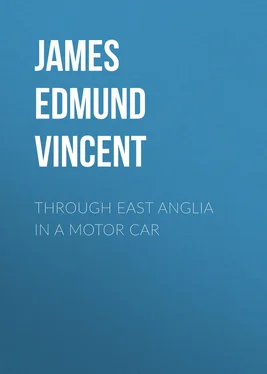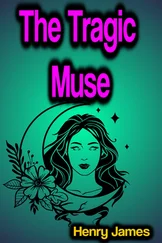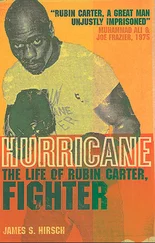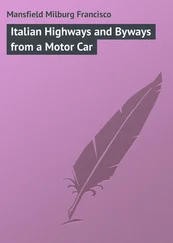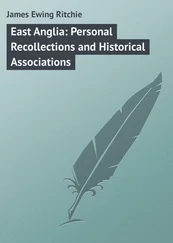James Vincent - Through East Anglia in a Motor Car
Здесь есть возможность читать онлайн «James Vincent - Through East Anglia in a Motor Car» — ознакомительный отрывок электронной книги совершенно бесплатно, а после прочтения отрывка купить полную версию. В некоторых случаях можно слушать аудио, скачать через торрент в формате fb2 и присутствует краткое содержание. Жанр: Путешествия и география, foreign_antique, foreign_prose, на английском языке. Описание произведения, (предисловие) а так же отзывы посетителей доступны на портале библиотеки ЛибКат.
- Название:Through East Anglia in a Motor Car
- Автор:
- Жанр:
- Год:неизвестен
- ISBN:нет данных
- Рейтинг книги:3 / 5. Голосов: 1
-
Избранное:Добавить в избранное
- Отзывы:
-
Ваша оценка:
- 60
- 1
- 2
- 3
- 4
- 5
Through East Anglia in a Motor Car: краткое содержание, описание и аннотация
Предлагаем к чтению аннотацию, описание, краткое содержание или предисловие (зависит от того, что написал сам автор книги «Through East Anglia in a Motor Car»). Если вы не нашли необходимую информацию о книге — напишите в комментариях, мы постараемся отыскать её.
Through East Anglia in a Motor Car — читать онлайн ознакомительный отрывок
Ниже представлен текст книги, разбитый по страницам. Система сохранения места последней прочитанной страницы, позволяет с удобством читать онлайн бесплатно книгу «Through East Anglia in a Motor Car», без необходимости каждый раз заново искать на чём Вы остановились. Поставьте закладку, и сможете в любой момент перейти на страницу, на которой закончили чтение.
Интервал:
Закладка:
So we were sorry for the mechanic, but the thing had got to be done whether he liked or no, and for half an hour he lay on his back under the car, straining, grunting, otherwise eloquently silent, while black and viscous oil made a little pool on the road alongside of his honest head, and while we, pacing up and down the frozen road, forbore even to remind him that, if the road had been muddy, his fate would have been worse. In cases where an angel would lose his temper under the gentlest persiflage it is only decent to leave a willing but disappointed man to himself. The half-hour ended; the job was done; overdone a little, as the mechanic well knew, yet not so much overdone but that a driver of rare skill could disappoint him by ignoring the inconvenience; and we took our seats again. The car sprang forward like a living creature, moving fast and smoothly. There was all the difference in the world between the motion as it was and the motion as it had been, and the chagrin of the mechanic yielded to time and to the proud feeling that all was right with "his car" through his handiwork.
Sooth to say, the scenery was not interesting on a frosty and somewhat misty day. The route was, to start with, viâ Woodbridge, Wickham Market, and Stratford St. Andrew to Saxmundham; that is to say, the road runs along the brow, the very much wrinkled brow, of the upland, which is high by comparison with the lowland, extending a long way in from the coast, running from Felixstowe to Aldeburgh and beyond. Of that lowland we could see nothing. Woodbridge, appearing to consist of one street, long, straggling, and narrow, was the first village of any consideration through which we passed. Its chief claim to fame is that Edward Fitzgerald wrote letters at it, remarking in one, dated 1855, that Woodbridge had not reached 1842 yet. But we shall see Woodbridge again. Next came Wickham Market, narrow, straggling, and long. It is quite commonplace. From Wickham Market we went on to Saxmundham, and there committed a grave error. "Hot dinner," it was stated, was due in three-quarters of an hour, but it could be hurried forward if we wished. We wished accordingly, and wished afterwards that we had not, for the meat, some forgotten joint half-boiled, was in a state in which, according to the traveller Bruce, the Abyssinians eat their meat from choice; and the accompanying parsnips, quite hard, may have been fit to place before sheep. As we were neither Abyssinians nor sheep, but English travellers, the error was felt the more acutely because we had ourselves only to blame. Given the same conditions another time, I should urge a detour to Aldeburgh, a detour of some six miles to be begun about two miles short of Saxmundham, for Aldeburgh is worth seeing and man can feed there.
Of Aldeburgh an observation or two may be made on the basis of a sojourn a few years since. It is certainly one of the most bracing places in this world. It has a tolerable hotel, good golf-links, and a fine view of the sea; and the ancient moot-house is picturesque. The abiding impression left by Aldeburgh is simply that it is the oddest place ever seen. The little River Alde, starting somewhere near Saxmundham, follows a more or less southerly course for a couple of miles; then an even smaller river joins it, and, flowing eastward for a mile or so, the combined streams seem to be heading for the sea, distant about six miles; but it takes them fifteen miles, even with the help of another so-called river, purposeless as themselves, to reach the sea; for first they are lost in a mecranking mere of sluggish water, which actually approaches within a hundred yards of the sea at Aldeburgh, where it is stopped by a stony bank. The mere continues, and the rivers are merged in it, parallel to high-water mark, divided from it sometimes by a hundred yards or so, sometimes by half a mile, for nine miles from the point of turning, and soon the water is dubbed River Ore in the map. By this time it is meandering, mainly under the influence of the tide most likely, behind and to the west of Orford Ness, and it is not until somewhere about the middle of Hollesley Bay that this utter absurdity of a river, this monstrous estuary for three trifling streams, finds its way into the sea.
A year or two ago the good folks of Aldeburgh celebrated their native poet, George Crabbe, though why they chose the date, seeing that Crabbe was born in 1754 and died in 1832, it is not quite easy to see. The celebration, indeed, was, like the use made of Pickwick by the hotel at Ipswich, an example of the truth that a community or an individual having a mind for advertisement will not be stopped by petty considerations of pride. George Crabbe was born at Aldeburgh, through no fault of his own. He left it in 1768, to be apprenticed to a surgeon at Bury St. Edmunds. He came back to it to practise as a surgeon, and failed miserably as a medical man, because his mind was on the making of verses all the time. Then he tried his fortune in London and beat despairingly on the doors of fame until Burke introduced him to Dodsley, who brought out The Library with some success in 1781. At about the same time Dr. Johnson expressed a high opinion of his verse. Next he was ordained and took up his residence as curate at Aldeburgh, but he left it soon to become domestic chaplain to the Duke of Rutland; and he does not seem to have had much, if anything, to do with his native place during his subsequent career as prosperous poet and comfortable clergyman. He was a distinctly sound poet, with a queer vein of humour, although his admirer, Edward Fitzgerald, whom we meet to-day, valued him perhaps too highly, and Byron, probably for his own purposes, overpraised him in the words:—
Nature's sternest painter, but her best.
Crabbe hated Aldeburgh, or Aldeburgh scenery at any rate; or, if he did not hate them, he took the stern view of them.
Lo! where the heath, with withering brake grown o'er,
Lends the light turf that warms the neighbouring poor;
From thence a length of burning sand appears,
Where the thin harvest waves its withered ears;
Rank weeds, that every art and care defy,
Reign o'er the land and rob the blighted rye.
Thus does he describe the vicinity and thus the so-called river and its marge:—
Here samphire banks and saltworth bind the flood,
And stakes and seaweed withering in the mud;
And higher up a ridge of all things base,
Which some strong tide has rolled upon the place.
No, assuredly Crabbe had no liking for Aldeburgh, and to be perfectly candid, I agree with him that, save for golfers, it is a dreary and eye-afflicting place. In this view I confess to have believed myself to be singular and, for expressing it, have incurred scorn more than once. So Crabbe is quoted in confirmation, yet with the hope that those who visit Aldeburgh may agree with the general view and not with that of a minority of two, one of them something better than a minor poet. Be it added, in justice to Aldeburgh, that you can look for amber among the pebbles on the beach. So you can anywhere and find as much as I did.
From Saxmundham we laid a course due north for Yoxford—Peasenhall of murderous fame lies some three miles to the west—and passed by way of Darsham to Blythburgh. Here, in a village named in Domesday , is a really striking fifteenth-century church, in good Perpendicular and with splendid clerestory, plainly visible from the road; and we are not far from Southwold, now known of many as a summer resort, whereas in days not long past it was visited by few persons save those who knew of the existence of St. Edmund's Church with its really majestic tower and rare rood-loft. Here, by the way, is buried Agnes Strickland, the historian. The very slight inward curve of the coastline here is dignified with the name of a bay, and as Sole Bay, which is simply Southwold Bay spoken short, it has a considerable place in history. On 28 May, 1672, "the combined fleets lay at Sole Bay in a very negligent posture." They were the fleets of England, under the command of the Duke of York, with Lord Sandwich under him, and of France; and here De Ruyter, the greatest sea-captain of his age, took his royal adversary quite by surprise. This was due not so much to the dashing merit of De Ruyter as to the crass carelessness of the Duke, for "Sandwich, being an experienced officer, had given the Duke warning of the danger; but received, they said, such an answer as intimated that there was more of caution than of courage in his apprehensions." What hasty words, I wonder, of the rude and haughty admiral were represented by this sonorous periphrasis? De Ruyter came, with ninety-one ships of war and forty-four fireships, sailing "in quest of the English," and Sandwich, after giving the warning in vain, saved the day by a display of gallantry to be ranked as extraordinary even in the annals of the English navy. Sailing out to meet the Dutchman, he engaged him at once and gave time to the Duke and the French admiral. "He killed Van Ghent, a Dutch admiral, and beat off his ship; he sunk another ship, which ventured to lay him aboard; he sunk three fireships, which endeavoured to grapple with him; and, though his vessel was torn to pieces with shot, and of a thousand men she contained near six hundred were laid dead upon the deck, he continued still to thunder with all his artillery in the midst of the enemy. But another fireship, more fortunate than the preceding, having laid hold of his vessel, her destruction was now inevitable. Warned by Sir Edward Haddock, his captain, he refused to make his escape, and bravely embraced death as a shelter from that ignominy which a rash expression of the Duke's, he thought, had thrown upon him." Admiral and flag-captain, in fact, perished when the fire reached the magazine, and this time at any rate the "price of Admiralty" was paid in full.
Читать дальшеИнтервал:
Закладка:
Похожие книги на «Through East Anglia in a Motor Car»
Представляем Вашему вниманию похожие книги на «Through East Anglia in a Motor Car» списком для выбора. Мы отобрали схожую по названию и смыслу литературу в надежде предоставить читателям больше вариантов отыскать новые, интересные, ещё непрочитанные произведения.
Обсуждение, отзывы о книге «Through East Anglia in a Motor Car» и просто собственные мнения читателей. Оставьте ваши комментарии, напишите, что Вы думаете о произведении, его смысле или главных героях. Укажите что конкретно понравилось, а что нет, и почему Вы так считаете.
